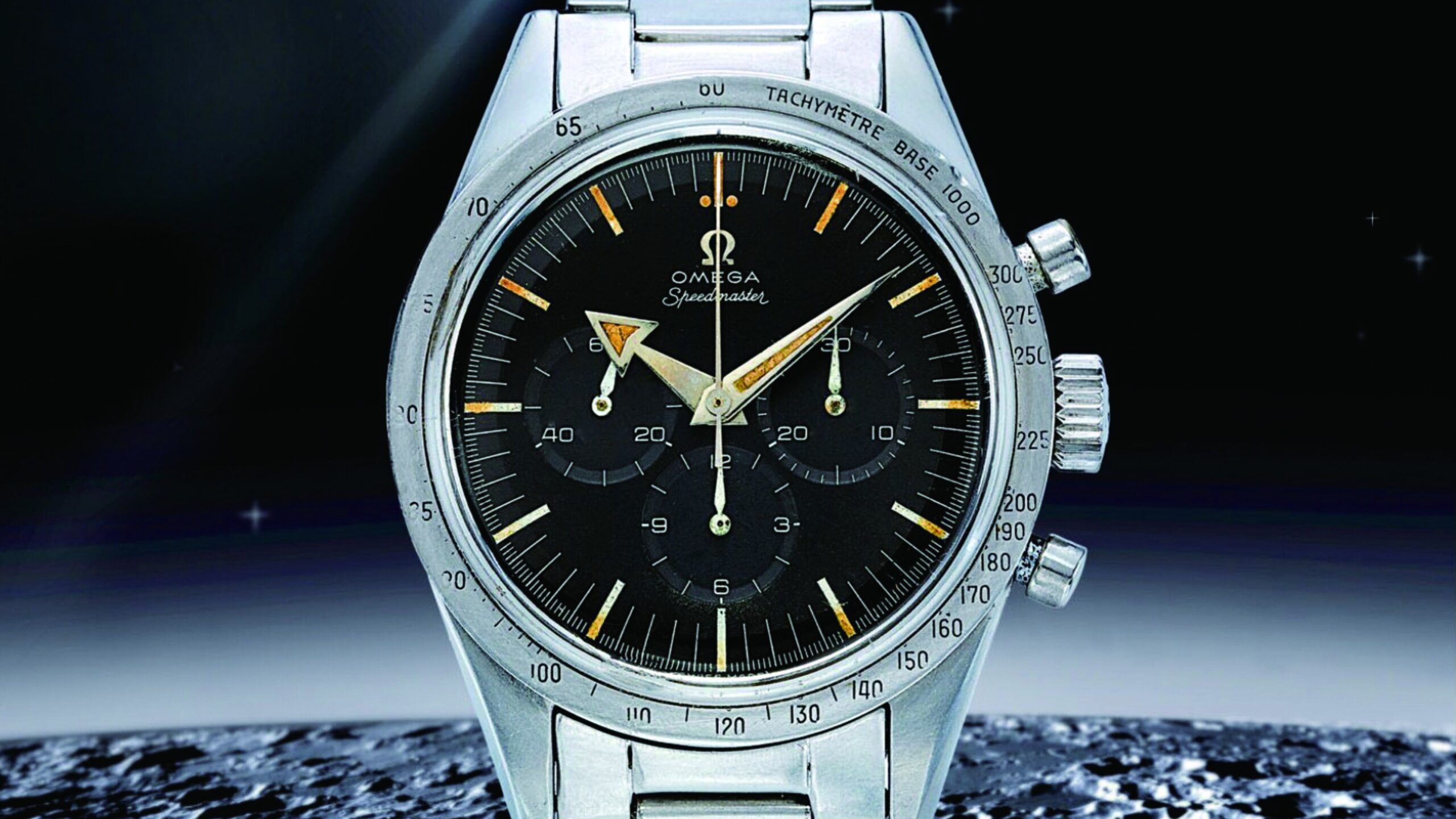
Old Time Magic- Secondhand second-hands win out as the watch world rewinds
The haute horology industry is famously adept when it comes to innovation in both the materials and movements. Indeed, it is this very aptitude that sees it continually able to astound, astonish and engage discerning enthusiasts and collectors alike. Of late, seven such old time, timepieces have particularly distinguished themselves in one of the world’s many specialist sales rooms.

Leading the list is a 1967 Cartier Crash, which went for a highly-respectable US$1.5 million (roughly US$1.65 million when the buyer’s premium is factored in) when it went under the digital gavel at a recent online auction hosted by Loupe This, the California-based virtual watch vendor. To put this a little into perspective, when the watch actually debuted some 55 years back, it could have been yours for an eminently reasonable US$50. Perhaps its latter-day valuation owes much to its clear homage to Salvador Dali’s iconic The Persistence of Memory.

Only last year, another fine example of heritage horology made notable waves when it came up for auction – a 1957 OMEGA Speedmaster “Broad Arrow” Ref. 2915-1. The Speedmaster is rightly famed as the only model of watch ever to be worn on the moon, a distinction owed to the marque’s exclusive partnership with NASA. Its value, has also been heightened by the fact that it’s one of relatively few Omegas to not feature the brand’s seahorse emblem on its case back. All told, this was just one of the many factors (including its near pristine condition) that saw it fetch a staggering US$3.12 million.

Another piece worthy of due acknowledgment is the 1952 Rolex Bao Dai Ref. 6062, a classic timepiece historically commissioned by the last Emperor of Vietnam. It remained in the possession of the royal family until it was sold in 2002. Some 15 years later, it cropped up again and an anonymous buyer snapped it up for US$5.06 million, in the process setting a new record for the most expensive Rolex ever to be auctioned.

That record, however, only endured for some five months, before another Rolex – the 1968 ‘Paul Newman’ Daytona – soared past it in the record-breaking stakes. This latter watch, gifted to the eponymous actor by his wife within a year of its release, was the first Daytona to feature a tachymeter scale on its bezel, while its dial came strikingly burnished in three different colours – black, white and red. Much beloved by the star, he eventually gifted it to his daughter’s then-boyfriend in 1984, who, in turn, sold it five years ago via Phillips New York for the princely sum of US$17.75 million. To date, it remains the most expensive vintage wristwatch ever sold at auction.

Turning to pocket watches, the star performer here is the 200-year-old Breguet & Fils, Paris, No. 2667. A truly elegant 18K gold creation said to be the first-ever resonance watch fashioned by brand founder Abraham- Louis Breguet, it was sold in 1814 for roughly 5,000 French Francs (about US$750 in today’s money). By contrast, when it headlined a Christie’s auction a decade ago, it commanded a hefty US$4.69 million price tag.

The currently priciest vintage pocket watch, however, came courtesy of Patek Philippe in the form of its 1943 Henry Graves Supercomplication. Deemed one of the most intricate creations ever to exit a Swiss workshop, this 18K gold timepiece contains a truly impressive 24 complications. Commissioned by the eponymous Henry Graves Jr, the price he paid some 79 years back was the equivalent of US$15,000 today in value terms. Some eight years ago, though, when auctioned by Sotheby’s Geneva branch, it went up for nearly 1,600 times that figure – US$23.98 million.

Another vintage Patek worth a mention is the 1943-made Stainless Steel Ref. 1518, which, five years back, sold for some US$11.134 million. Sleekly-designed and with a diameter of just 35mm, it was the first timepiece to ever integrate both a perpetual calendar and a chronograph. Furthermore, only 281 Ref.1518s were ever made, with just four of these are burnished in stainless steel.
(Text: Tenzing Thondup)







